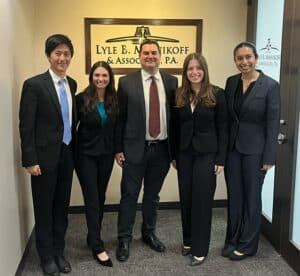DEPOSITIONS:
THE TWO MOST COMMON MISTAKE MADE, AND HOW TO BE A SUCCESSFUL DEPONENT
Background on Depositions
A Deposition is merely a question and answer session taken under oath with a court reporter present. Workers’ Compensation depositions usually last about one to two hours. They are usually located in a court reporter’s office in the venue in which the industrial accident occurred. The attorney for the insurance company will ask the Claimant a series of questions regarding his/her employment and medical history, and his/her background information. This blog entry’s intent is to highlight the two most common mistakes made during these Depositions and secondly, to offer solutions to ensure a successful Deposition.
THE FIRST COMMON MISTAKE
The first common mistake is what is called “the never-ending answer.” The “never- ending answer” starts off as a simple sentence answering the question presented. The deponent will proceed to tell the attorney his/her life story and at the same time volunteer too much information. The backlash of the “never-ending answer” is that the Claimant has possibly damaged his/her case by giving the attorney extraneous information that a) was not contemplated by the question and b) ends up contradicting a matter in the Claimant’s case.
An example for illustration: Mr. James is an executive for the Miami Heat, who was injured while putting up a championship banner at the Miami Arena. Attorney: Mr. James, what was the date of your alleged industrial accident while working for the Miami Heat? Mr James: I have worked for the Heat for two years, so the date must be June 10, 2012. I remember injuring myself at work, however I also remember walking my dog, Chalmers, and Chalmer’s leash became entangled in my foot, and I tripped injuring my back. I do not recall which accident caused the injury to my back.
The Claimant, Mr. James, volunteered extraneous information regarding unrelated injuries, and in turn set himself up for a possible denial of benefits. The insurance company will be lead to believe that there was a separate incident that could have caused the same injury. The Claimant failed to give a timetable for the dog incident and also did not answer the question presented. It is imperative that a Deponent answer the question presented, in a short and concise manner. In the realm of Depositions, less is more. A successful Deponent answer his/her questions in short sentences, and never tells a “never- ending story!
The Second Most Common Deposition Mistake
The second most common mistake a Claimant makes is what I call “self-diagnosis: omitting prior injuries and accidents.” Workers’ Compensation Claimants are fearful of losing their claim. Their logic is based on their own self diagnosis of these prior injuries/ accidents and their case. Some believe that if they withhold certain facts such as: prior surgeries, and prior car accidents, that the Employer/Carrier will not find out. They also believe that their cases will become stronger if they fail to mention these previous accidents and injuries. This is where numerous problems arise. First, the Claimant will have virtually lied/omitted key facts. Secondly, the Employer/Carrier will have the option of pursuing a 440.105(4)(b)(1)(2) (5) and (6) claim. A 440.105(4) claim is one in which the Employer/Carrier files a claim for Insurance Fraud. The Employer/Carrier has the option of denying money and medical benefits if they think they can show that the injured worker made false, fraudulent, or misleading statements in connection with their workers compensation claim.
The successful Deponent will state all material facts, regardless of how “damaging” he/ she might believe the information to be. Moreover, a Claimant must not fall into the trap of self-diagnosis. The Claimant should be forthcoming about any and all previous accidents and injuries that he/she sustained. However, the same rules apply as in the mistaken “never-ending answer”; a deponent need not share more information than the question calls for.
There is a thin line between too much and just enough. Providing just enough information is the safest route to travel and will ensure an advantageous use of the Deposition. A Claimant will help him/herself out by providing all material facts, and by keeping his/her answer tailored to what the question calls for.
























